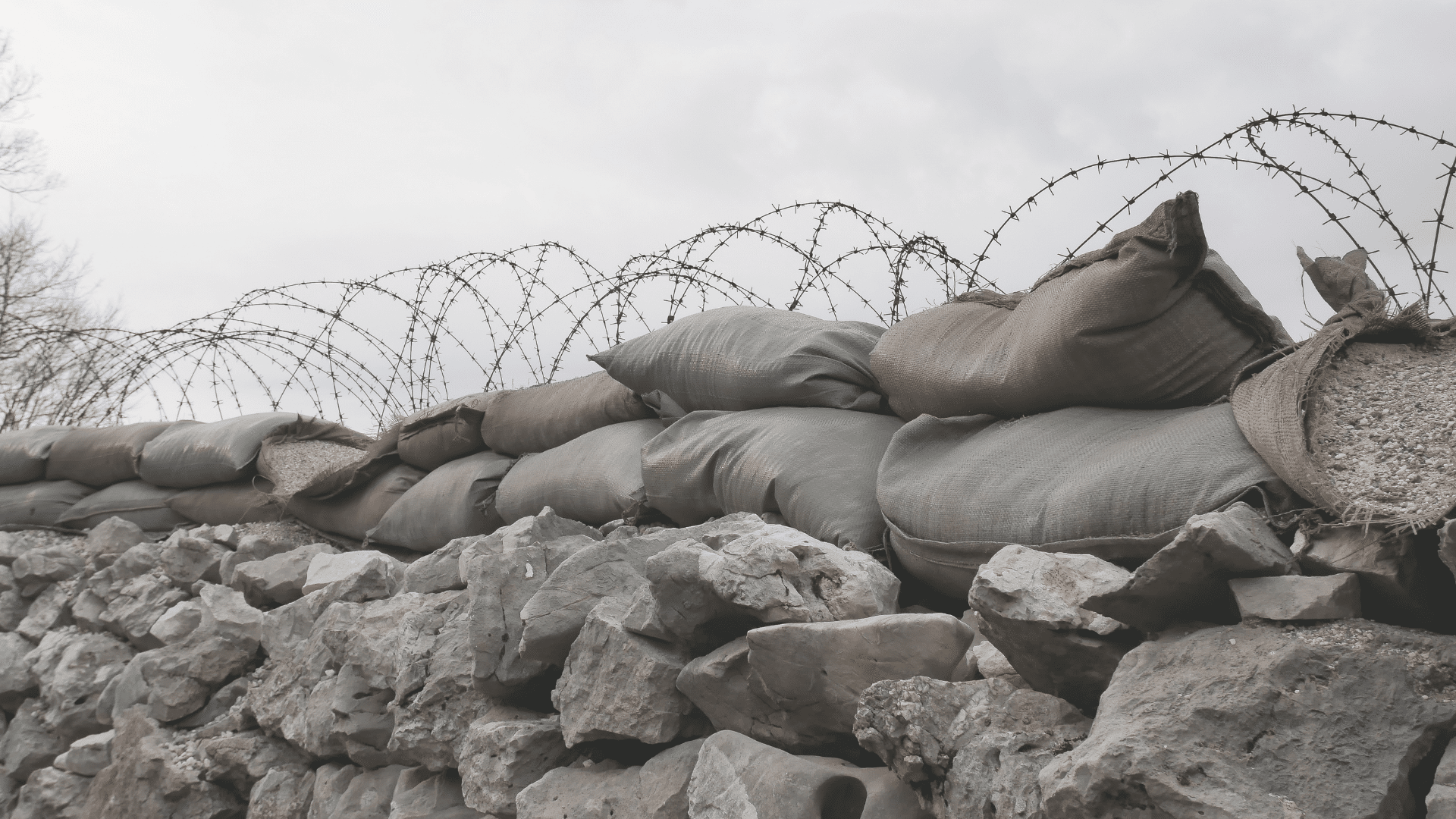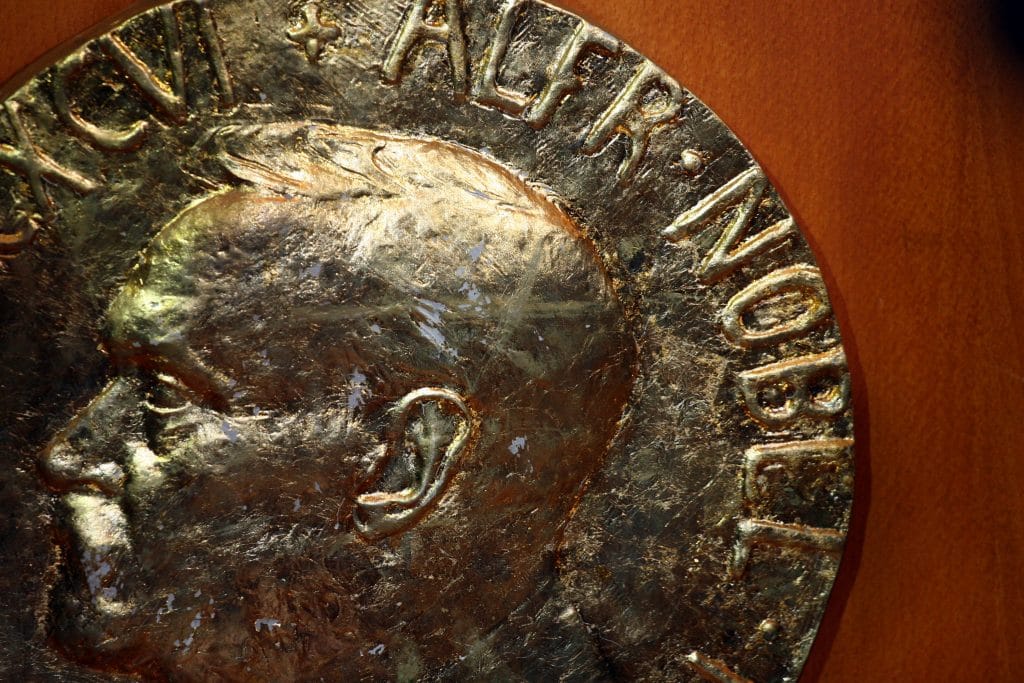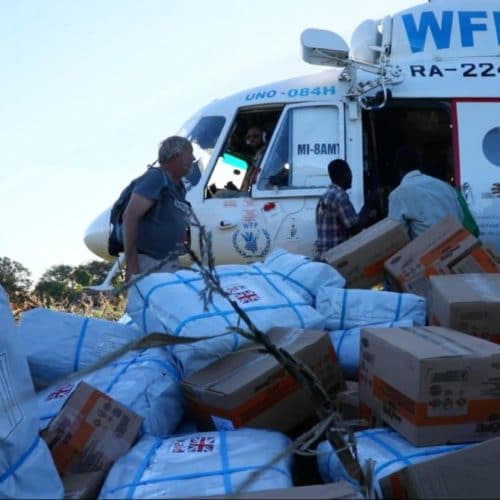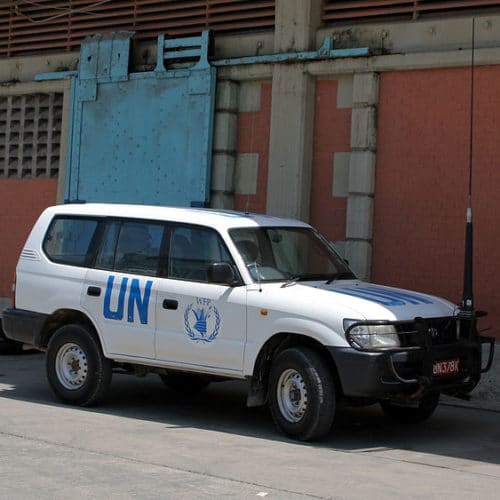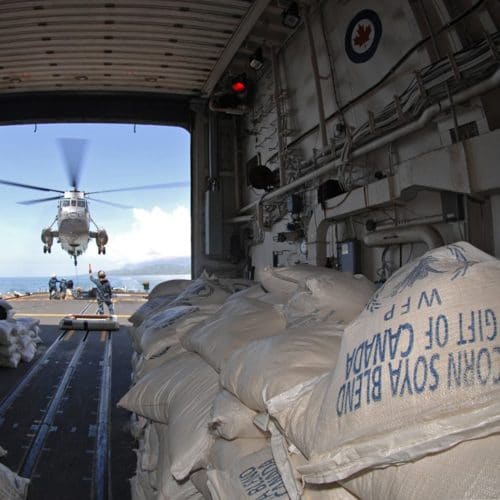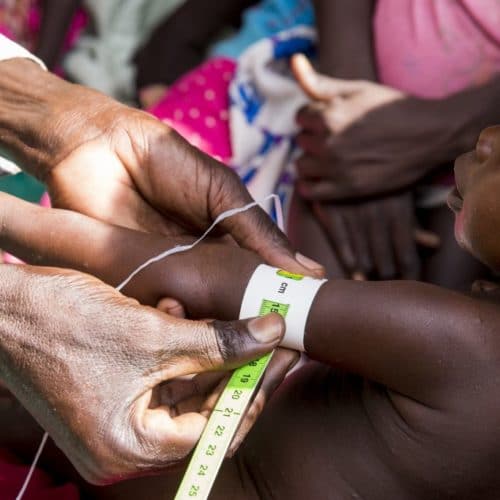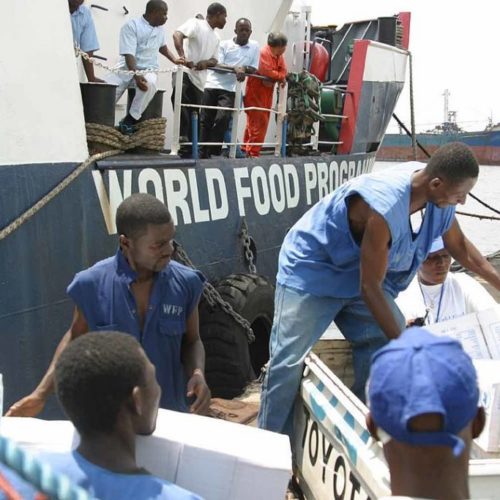The 2020 Nobel Peace Prize was awarded to the World Food Programme (WFP) for “its efforts to combat hunger, for its contribution to bettering conditions for peace in conflict-affected areas and for acting as a driving force in efforts to prevent the use of hunger as a weapon of war and conflict”. WFP is the world’s largest humanitarian organization, and food insecurity and food aid are much-discussed topics in humanitarian studies.
In this blog series, we examine the implications of the award and critically engage in debates on food (in)security, food aid, innovation and technology and the WFP as a humanitarian actor. This is the fourth post in the series.
The recent award of the Nobel Peace Prize to the World Food Programme (WFP) triggered mixed reactions. WFP’s humanitarian efforts certainly deserve applause. At the same time, questions arise. Do already privileged organisations doing their mandated jobs need such affirmation? More fundamentally, should humanitarian and peace efforts be confounded?
The Norwegian Nobel Committee recognised WFP for its efforts against hunger, bettering conditions for peace in conflict-affected areas and preventing the use of hunger as a weapon of war. This is great work but largely about mitigating the consequences of conflicts and not tackling their root causes.
hunger is often used as a weapon of war
Yes, hunger is often used as a weapon of war and WFP’s food pipeline succours desperate civilians. Whether that prevents the weaponisation of food or contributes to peace is debatable. It could also, unintentionally, free belligerents of responsibility for populations under their control and just keep on fighting.
The good deeds of WFP and other humanitarian organisations require no justification beyond their intrinsic merit in preserving humanity. In contrast, peace-making, peace-keeping, and peace-building are fundamentally partisan – and hence political – especially when there are contentious perceptions of “good” and “bad” sides.
Co-opting the supposedly impartial humanitarian endeavour into the peace cause compromises the precious trust that is essential to reach all sides. In anointing WFP, the Committee has sent perverse signals especially when it’s pronouncement hitched this year’s Prize to the defence of multilateralism that has been so damaged by COVID-19 politics.
What ‘peace’ should the prize signify?
What is the ‘peace’ that the Committee wants the Prize to signify? “Blessed are the peacemakers…” proclaimed Matthew 5:9 in the Christian Bible. The Muslim Quran talks at 5:16 about the “ways of peace”. Other theologies have their own constructs. Millennia later, the nuances of these hallowed words are still puzzled -or even fought – over.
The same is true about Alfred Nobel’s will of 1895. He established his Peace Prize for persons (not organisations!) who have done “the most or best to advance fraternity between nations, the abolition or reduction of standing armies, and the establishment and promotion of peace congresses”. While his instructions are clear, how are they to be interpreted in our ever-changing world?
Humanitarians well-recognised
Perhaps that is why the Committee’s decisions have elicited both approbation and bewilderment during the 120 years of the Peace Prize that, ironically enough, coincided with the bloodiest phase of recent human history. The 135 peace laureates include 28 organisations and 107 individuals, of which 77 are European/American and 17 women.
Humanitarians are well-recognised: the International Committee of the Red Cross (ICRC) won three times, the United Nations High Commissioner for Refugees (UNHCR) twice, as well as the League of Red Cross (now International Federation of Red Cross and Red Crescent Societies), UNICEF, Médecins Sans Frontières, and individual humanitarians such as Henry Dunant (the first laureate in 1901 and Red Cross founder), Albert Schweitzer, and Mother Teresa.
Human rights bodies are there too, notably Amnesty International and human rights activists such as Martin Luther King Jr, Andrei Sakharov, Elie Wiesel, and Liu Xiaobo. All of them are great, though they illustrate a wider paradox. The stand they – and others inspired by them – take for human rights often generate conflict. That is not surprising. After all, no fundamental human right that we take as a universal norm nowadays was ever won without someone somewhere having first struggled – and usually fought – for it. In many cases, the same human right had to be fought for again and again to preserve or regain it. Human rights and peace make uneasy bedfellows.
Less controversially, several conflict mediators and treaty negotiators such as Ralph Bunche and Dag Hammarskjold are represented among the Nobel Peace laureates but actual pro-peace bodies are relatively rare. Frederic Passey is acknowledged for the first Universal Peace Conference. There followed a few others including Nobel’s friend, Bertha von Suttner, and the International Peace Bureau, Quakers and the Dalai Lama.
Nobel’s peace philosophy
By all accounts, even by his adoring admirers, Alfred Nobel’s peace philosophy was not profound. His family enterprise benefited from armaments for the Crimean War and he made his fortune from dynamite and other explosive materials, albeit for civilian use. He said that it was not his responsibility if people used his inventions for wholescale killing. Nevertheless, a prematurely-released obituary described Dr. Nobel as having become rich by finding ways to kill more people faster than ever before. Perhaps that stimulated his desire to be remembered in a better way. His soul will be comforted that his Prize has gone subsequently to campaigners against weapons of mass destruction such as the International Physicians for the Prevention of Nuclear War, the International Campaign to Ban Landmines, and the Organisation for the Prohibition of Chemical Weapons.
Peace prize controversies
Mahatma Gandhi is perhaps the greatest known peace apostle whose birthday (2nd October) is the UN -designated International Day of Non-Violence. He was turned down five times for the Prize and the narrow-minded Norwegian Committee accused of not appreciating the struggles of non-European people or of being cowardly for fearing damage to Norway’s relations with the powerful British Empire. The missing laureate’s supporters asserted that Gandhi could do without the Nobel Peace Prize but whether the Nobel Committee could do without Gandhi was the question. This question was answered by a succeeding Committee expressing deep regret that Gandhi had not got the Prize.
Of course, all reputations are shaky. Gandhi is nowadays accused of racism with his statues at risk of been toppled. Similarly, Nobel Peace laureate Aung San Suu Kyi has been widely criticised for connivance with crimes against humanity inflicted on the Rohingya. The Nobel Committee have taken convenient refuge behind their self-created procedures that the Prize cannot be awarded posthumously (Gandhi) and neither can it be recalled (Suu Kyi).
Meanwhile, the annual Peace laureate announcements are as full of drama as the Hollywood Oscars but the selections are about as transparent as the Papal elections. To be fair, this is bound to be a precarious affair as all peace is provisional. A classic example was the 1973 Prize for the Paris peace accord. The United States’ Henry Kissinger accepted the Prize but did not attend the ceremony, while North Vietnam’s Lê Đức Thọ refused it. In any case, neither of them were convincing role models for peace: the war continued until Vietnam was forcibly united after considerable further bloodshed.
Politicisation of the award
The Nobel Peace Prize is also accused of politicisation. That is ironic as peace is very much a political business and is the reason why the majority of peace laureates are political personalities. They include no less than 26 heads of state and government (including four American Presidents) and political entities such as the United Nations and the European Union. Why not? Even if many of the Prizes are for unfulfilled aspirations rather than real accomplishments, perhaps they are still useful pour encourager les autres.
That brings us back to the Peace Prize – the only one of the Nobel Prizes that can – for unclear reasons – be bestowed upon institutions. Does WFP as the UN’s largest humanitarian body with an approx US$8 billion budget really need the medal, diploma, and modest US$1 million money? Will it make any difference to countering the record levels of world hunger or progressing peace anywhere?
Future approach to recognising peacemakers
The Norwegian Nobel Committee may wish to rethink its future approach to recognising real peacemakers who certainly need all the encouragement they can get. Meanwhile, it is also time to value humanitarian work for its own sake: perhaps a Nobel Humanitarian Prize for doing simple good that is unencumbered by calculations of peace or the sending of obscure or contentious political signals. It should be given to otherwise unrecognised humanitarian workers – not huge organisations – as a powerful affirmation of the power of ordinary humanity.
Dr. Nobel could then truly rest in peace.


